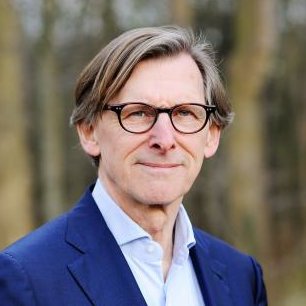Jeroen van den Hoven reappointed in European Group on Ethics in Science and New Technologies
The European Commission appointed 15 new members of the new European Group on Ethics in Science and New Technologies (EGE). Jeroen van den Hoven, professor in Ethics and Technology at TU Delft, has been reappointed.
Van den Hoven is regarded as one of the top-tier experts in ethics, technology and innovation by the European Commission. The members of EGE advise on all aspects of Commission policies and legislation where ethical, societal and fundamental rights dimensions intersect with the development of science and new technologies. EGE members have a far-reaching understanding of current and emerging ethical developments and bring a wealth of experience from academia, ethical and government advisory bodies.
Mariya Gabriel, Commissioner for Innovation, Research, Culture, Education and Youth, said: “Research and innovation improve people’s lives and the environment they live in. The expertise and wisdom of the 15 newly appointed members of the European Group on Ethics in Science and New Technologies will help us to put European values at the heart of the green and digital transition.”
Jeroen van den Hoven is very honoured to be reappointed: “Brussels and the EU set the tone internationally and guide the thinking on responsible use of digital technology and on a good information society. As one of the few geopolitical blocs in the world, Europe is guided in its innovation by fundamental rights and the underlying ethical principles. New legislation on big data, artificial intelligence and the power of Big Tech will be introduced in the coming years. The EGE will be asked to shed light for the Commission on many important ethical issues raised by this new technology. It will be my privilege to contribute to this as I have done in the previous mandates of the EGE.”
The appointments follow the renewal of the EGE’s legal mandate and the publication of the call for applications last year. This re-confirms the commitment of the European Commission to embed ethics in EU policies and to further the Union as a community of values. The new makeup of the EGE reflects the broad cross-disciplinary scope of the group and represents a wide range of expertise from the fields of natural and social sciences, the humanities, philosophy, ethics and law.
About EGE
Since its inception in 1991, the EGE has provided the European Commission with high-quality independent advice. Its scope has progressively expanded from a focus on biomedical ethics to broader examinations of the major societal questions of our time. Previous EGE Opinions have focused on topics as wide-ranging as the future of work and the ethics of genome editing. With its new makeup, the EGE again comprises 15 highly qualified, independent members appointed in their personal capacity. The group reports to the President of the European Commission, and to the College of Commissioners as a whole, and was set up under the direct responsibility of the European Commissioner for Innovation, Research, Culture, Education and Youth. The members were selected from 150 candidates who responded to a public call for applications. The selection process was conducted with the support of an external Identification Committee, tasked with ensuring high-level professional experience and balance in terms of thematic expertise as well as geographical diversity and gender.
